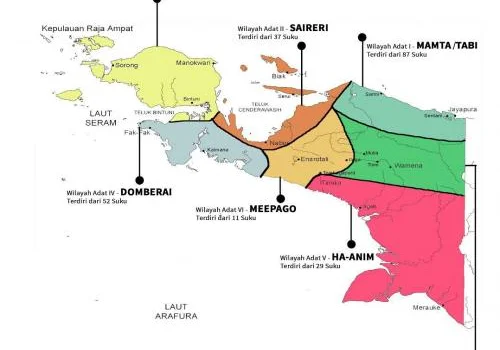Condemning OPM’s Cruelty and Promoting Peace in Papua

By: Dominggus Alam *)
The prolonged conflict in Papua involving the Free Papua Movement (OPM) continues to leave deep wounds for civilians. The violence they commit, such as shootings, hostage-taking, and open threats against security forces and innocent citizens, not only violates humanitarian principles, but also hinders efforts to build peace and prosperity in Papua. One of the most recent incidents was the shooting of the former Mulia Police Chief in Puncak Jaya, an action that once again emphasized the cruel methods used by the OPM. This kind of cruelty does not reflect the true aspirations of the Papuan people, but rather the actions of a handful of parties who actually worsen the lives of the people they claim to be fighting for.
banner 336×280
TPNPB-OPM often wraps its actions in the narrative of the struggle for independence, but the reality on the ground is far from noble. The main victims of this violence are the Papuan people themselves—teachers who teach children in the interior, medical personnel who are fighting to save lives, to ordinary citizens who just want to live their days safely. The shooting of the former Mulia Police Chief, as reported by various media, is clear evidence that their targets are not limited to security forces, but also anyone who is considered to be obstructing their agenda. This action is not just a crime against individuals, but an attack on the stability and hopes of the wider community to live in peace. The latest statement by TPNPB-OPM spokesperson Sebby Sambom, who mentioned the readiness to “fight against the Indonesian military until the end of the world” has further complicated the situation.
Head of the Information Center (Kapuspen) of the TNI Headquarters, Brigadier General Kristomei Sianturi, said that the TPNPB-OPM war challenge was merely propaganda aimed at frightening civilians. According to Brigadier General Kristomei, this militant attitude is not a constructive struggle strategy, but rather an attempt to create fear and chaos among the Papuan people. The war narrative they echo not only shows a rejection of dialogue, but also a disregard for the real impacts felt by local residents.
We must firmly state that violence is not the solution. Political or social aspirations, however valid, can be voiced through peaceful and democratic channels—not with weapons that only cause suffering. Although often criticized for its security approach in Papua, the government has shown a commitment to improving conditions in the Papua region through special autonomy policies, infrastructure development such as the Trans Papua road, and increased access to education and health. Unfortunately, groups such as the OPM often target these projects. Incidents of attacks on Trans Papua project workers in the past are evidence of the contradiction between the rhetoric of “liberation” they promote and the reality of the destruction they leave behind.
The Papuan people have the right to live in peace, free from threats and fear. The cruelty of the OPM must not be allowed to become the dominant narrative that overshadows daily life. The international community, including human rights organizations, need to take a firm stance by condemning the acts of violence carried out by this armed group. So far, the spotlight has often only been on the response of the government or security forces, while violations committed by the OPM tend to escape the attention of the media. In fact, true peace in Papua can only be achieved if the OPM is willing to lay down its arms and choose the path of dialogue and reconciliation.
The intimidation propaganda spread by the OPM, as mentioned by the TNI, also shows that their goal is not merely independence, but rather maintaining power and influence through fear. This can be seen from their attack patterns which often do not have clear strategic targets, but rather aim to create terror. In this context, civilians are the ones who suffer the most. Children lose access to education because schools are closed due to conflict, families are uprooted from their hometowns, and the local economy has stalled due to instability. If the OPM really cares about the Papuan people, why do they make the people the victims?
As a nation, we need to strengthen solidarity with the Papuan people. Ensuring social justice is realized and building trust are important steps to reduce conflict. The government continues to encourage a more inclusive approach, involving indigenous and religious community leaders and Papuan youth in the decision-making process. This is a form of democracy and recognition of the existence of Papuan society within the framework of the Republic of Indonesia. However, once again the OPM always creates terror with the alibi of guarding Papua. In fact, the OPM itself is the problem in realizing a peaceful Papua.
The cruelty of the OPM must be countered with a stronger humanitarian narrative, that every life is precious, and no ideology can justify the sacrifice of innocent people. Let us build a peaceful Papua, not with blood and bullets, but with open hands, hearts full of hope, and a commitment to a better future. Violence will only give birth to new wounds, while peace offers a way out for all parties.
*) Papuan Youth Cares About Peace – West Papua Children’s Association
